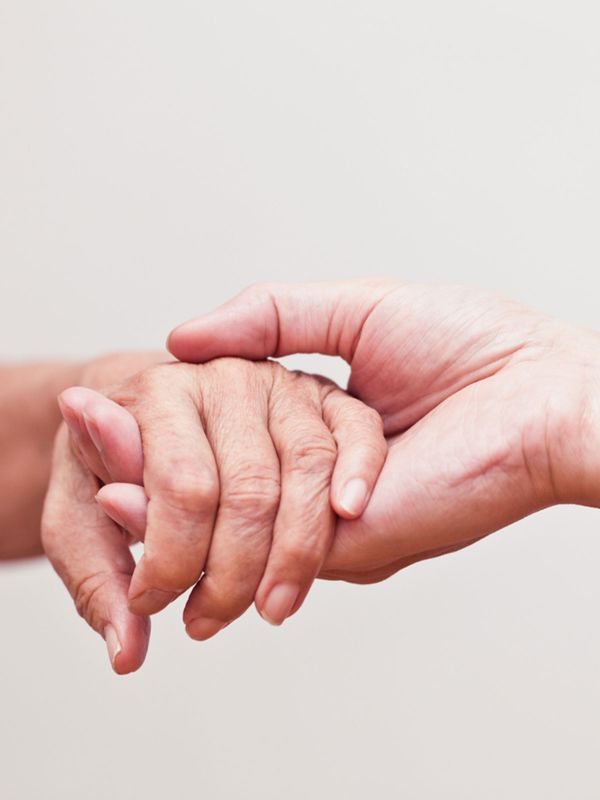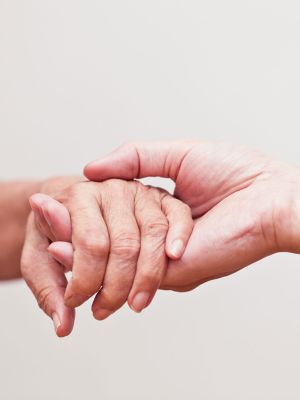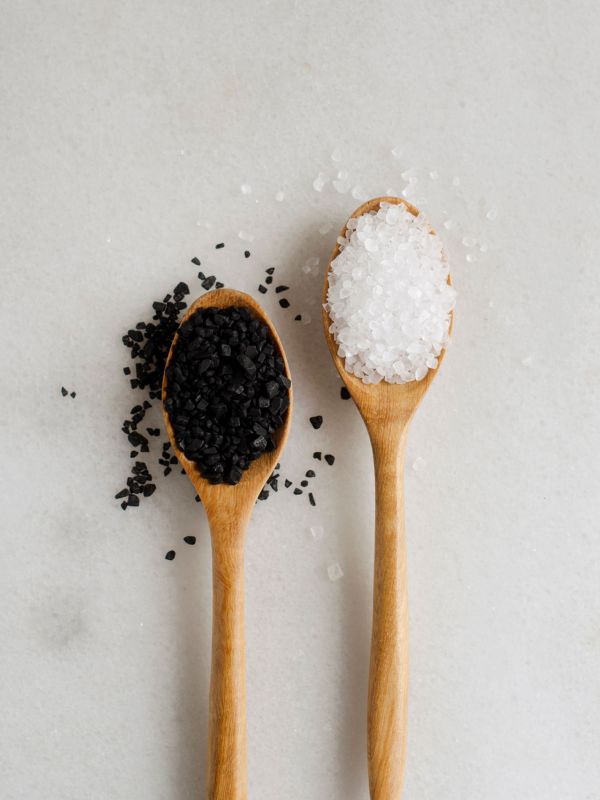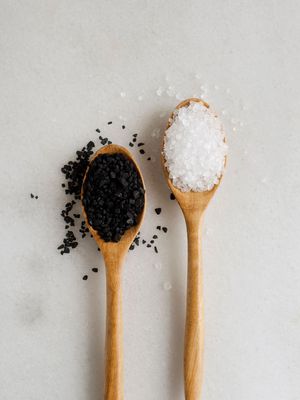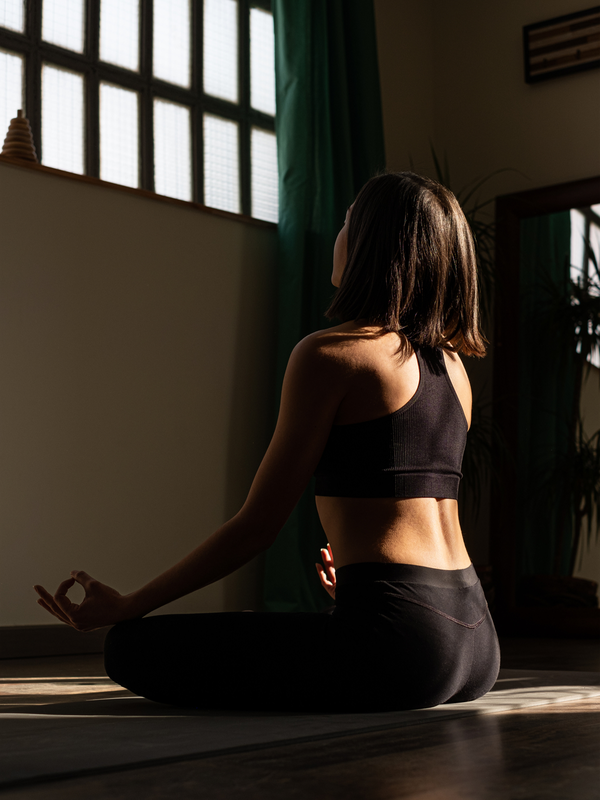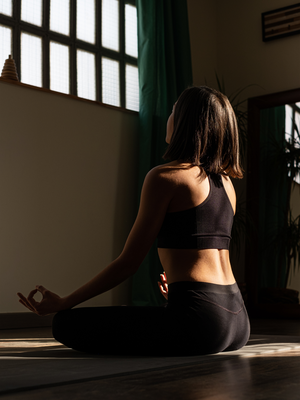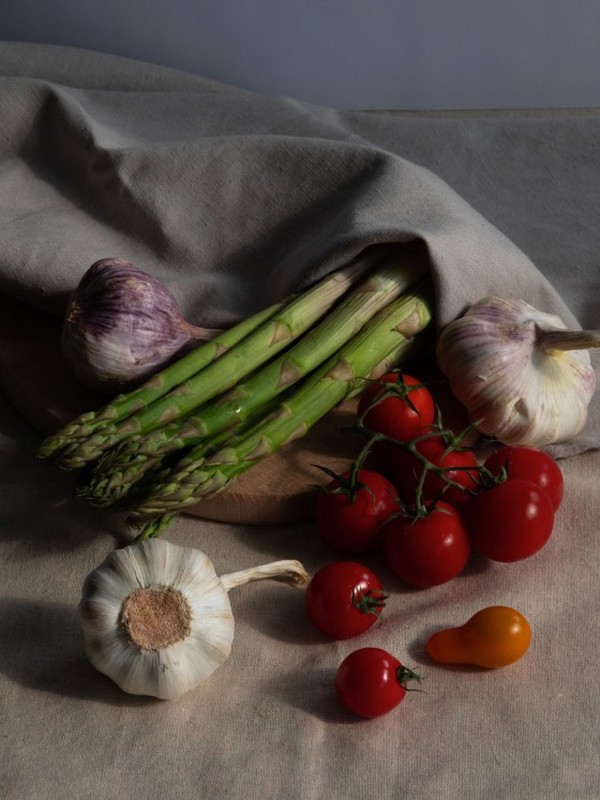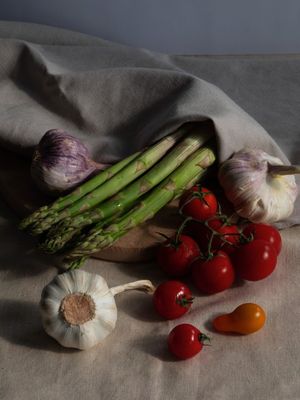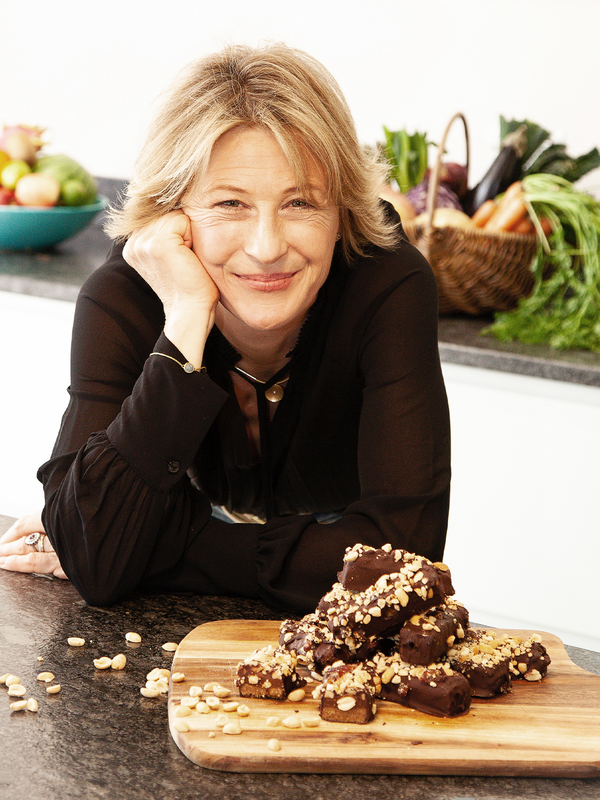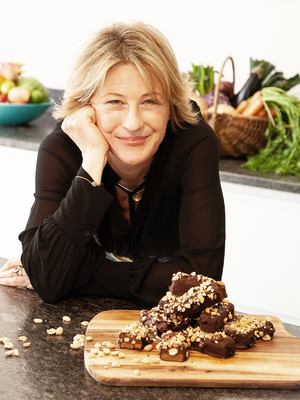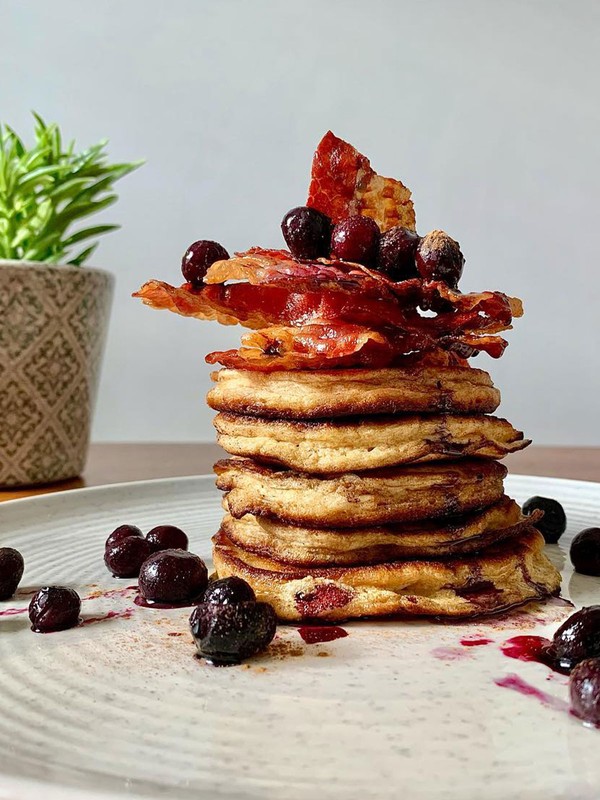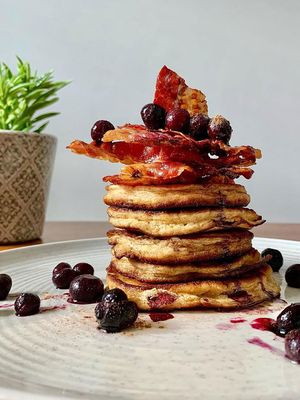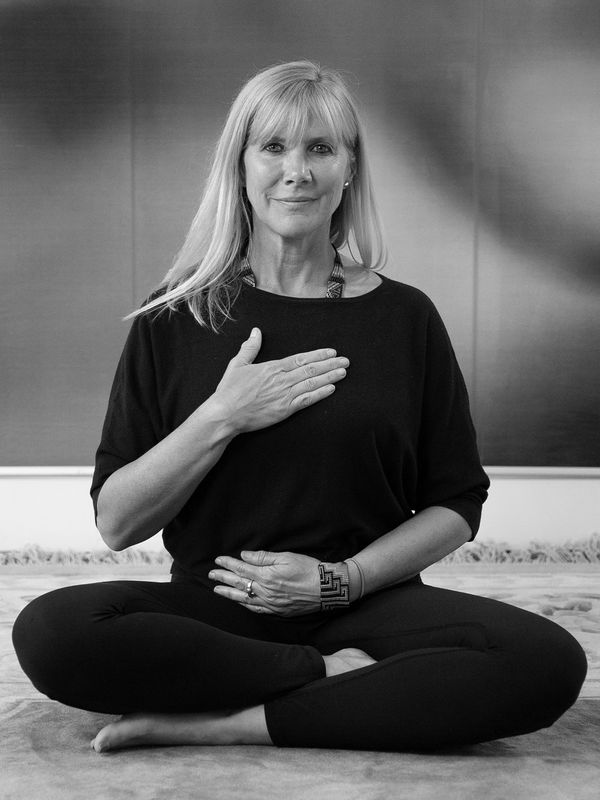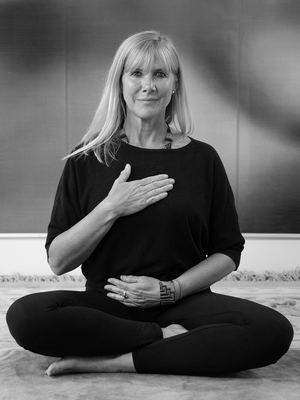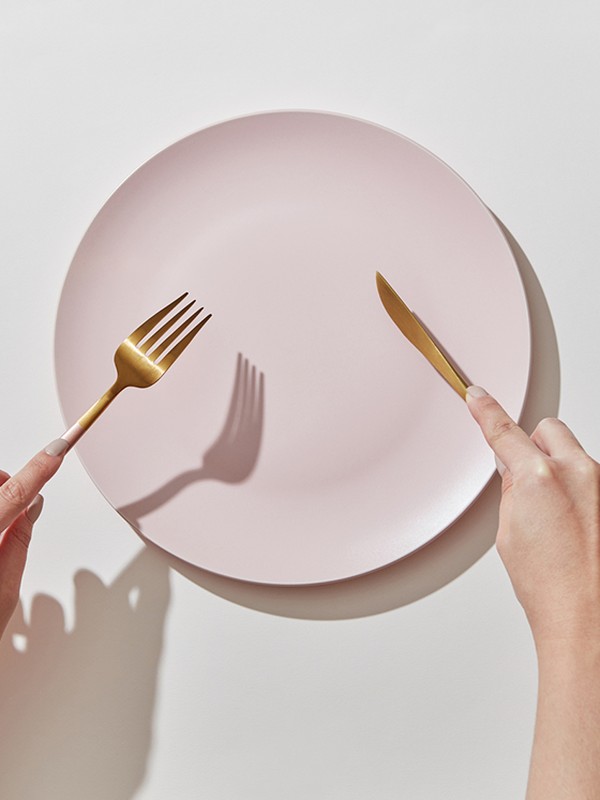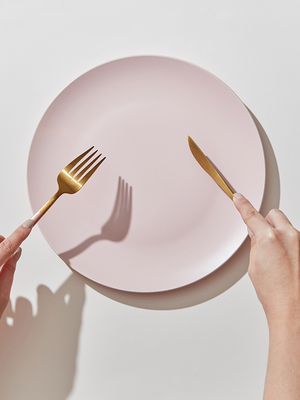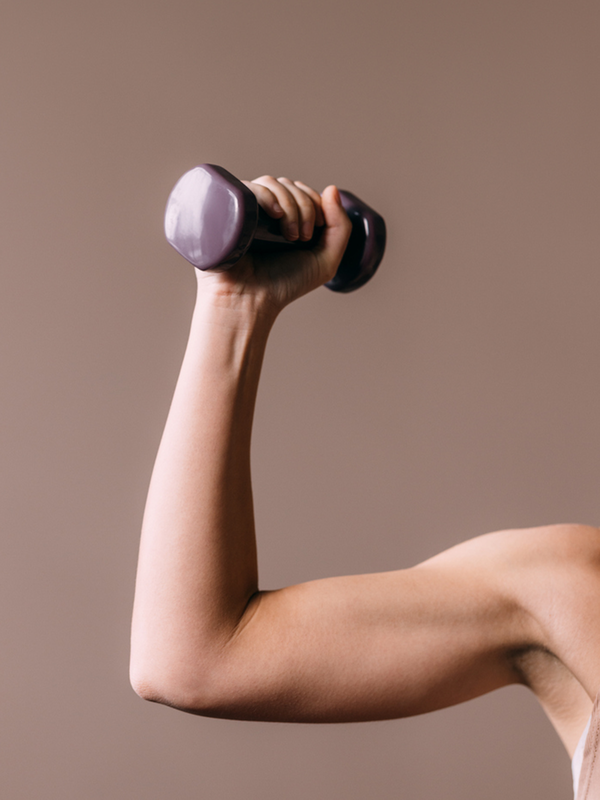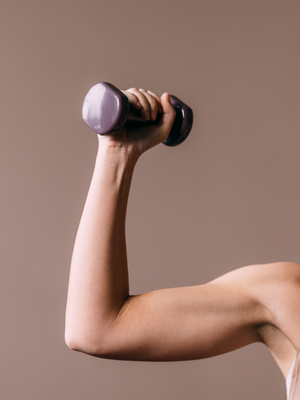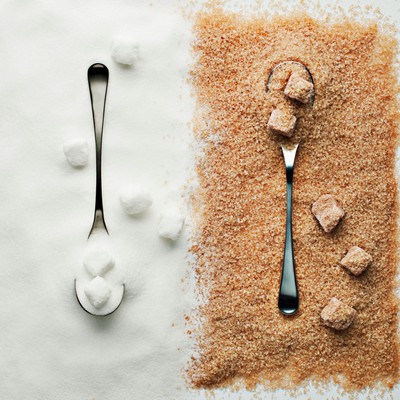
How To Balance Your Blood Sugar

Excess Carbs Can Make You Insulin Resistant
“When you eat a meal – particularly one that’s rich in sugary carbs – your insulin levels go up. Insulin’s job is to bring down the fat and sugar you’ve absorbed from your meals. Ideally, it would push those excess calories into cells to be burnt as fuel, but if you are insulin resistant then your muscles find it hard to absorb these calories, and instead they are dumped into your fat cells. The trouble is, your body still craves fuel, so you will soon feel hungry again, but because you are insulin resistant many of the calories you absorb get diverted into your fat cells, meaning you get fatter, but stay hungry. When you continually consume products that are high in sugar, your pancreas has to produce more and more insulin to regulate your blood sugar levels, which can lead to insulin resistance.” – Dr Michael Mosely, creator of The Fast 800
Pair Carbs With Fat, Protein and Fibre
“Both protein and fat help to slow down digestion and the absorption of sugar from your gut into the bloodstream, keeping you fuller for longer and your blood sugar levels more stable after eating. If you’re having some crackers or rice cakes, make them more sustaining by combining with a source of protein and/or fat such as cheese or nut butter. Or add tuna or a bean chilli to a jacket potato for lunch. Fibre – found in fruit, veg, wholegrains and pulses – also slows the rate of absorption of carbs into the bloodstream. The trick is to keep your portion sizes of carbs moderate, though – the larger the portion, the more your blood sugars will rise, no matter what protein, fat or fibre-rich foods you eat with it.” – Louise Parker, founder of The Louise Parker Method

Ditch White Carbs
“Each time you eat sugar or refined carbohydrates, your blood glucose spikes, and with it, your insulin levels. Cutting refined carbohydrates is the first and most important step back to health. Instead of white rice and bread, eat whole, unprocessed grains like whole oats, buckwheat, barley, brown rice and quinoa, and only in moderate quantities.” – Michael
Don’t Snack
“Snacking on the regular will keep insulin and blood sugar constantly topped up. Avoid snacking if possible, or find healthy snacks if you must: nuts can be a great source of protein and fibre. Try to avoid salted or sweetened nuts, which can be moreish. Or try a few bits of chopped veg, or a small amount of dark chocolate after meals – just make sure it’s at least 70% cocoa.” – Michael
Read Ingredients, Not Labels
“It’s important to remember we find sugar naturally in foods like fruit, vegetables, nut milk and other dairy products, and these foods provide essential vitamins and minerals. What we need to be mindful of, however, is free sugars – these may be added sugars or so-called ‘natural’ sugars found in honey, syrups and fruit juice. Get into the habit of reading the ingredients list for words like sucrose, hydrolysed starch, agave nectar, honey and coconut palm sugar. These are all sugars, just under a different guise. Choose natural yoghurt over sweet yoghurts and rolled oats and shredded wheat over sugary breakfast cereals.” – Louise
Get Your Fix With Fruit
“If you fancy something sweet, fruit can be a great addition to a meal or snack instead of adding sugar. Swirl blackberry compote into porridge or yoghurt; blend a frozen banana in a food processor for a delicious no-sugar fruit sorbet; or snack on a homemade trail mix of chopped nuts, seeds and dried cranberries.” – Louise
But Be Wary Of Tropical Varieties
“Try to avoid sweet fruits where possible. Berries, apples and pears are fine, but sweet tropical fruits such as mango, pineapple, melon and bananas are full of sugar. Berries are the best fruits to eat – a serving of 100g of blueberries comes in at 57 calories and satiates a sweet craving.” – Michael
Make Exercise A Priority
“During exercise, your muscles use sugar from your bloodstream, so over time, this can lower your blood sugar levels. Scientists have shown that being physically active can prevent or delay the development of some conditions, including type 2 diabetes, so paying your daily rent can pay off in the long term when it comes to optimising your health.” – Louise
Fuel Adequately For A Longer Session
“The body stores some sugar in your muscles and liver – this is referred to as glycogen. During exercise, these stores are released into the bloodstream and used as a source of fuel. If you are training at a high intensity or for long periods of time, these stores may not be sufficient, so you may feel tired and lack in energy during your session. As a rule, the more strenuous your workout and the longer it lasts, the more your blood sugar will be affected. Fuel up if you are exercising at a high intensity or for longer than 90 minutes.” – Louise
Every Little Helps
“A combination of cardio and resistance training will remodel your appetite from the first workout onwards. Incidental exercise, too, is important. Climb the stairs rather than taking the lift; walk rather than taking the car; and take five-minute breaks from sitting at your desk each hour.” – Michael
Choose The Full-Fat Option
“We’ve been told all our lives to avoid fat. In response, the food industry has offered a range of sugar-laden low-fat ‘diet’ foods; obesity rates, meanwhile, continue to soar. But far from being a cause of weight gain, ‘good’ fats – rich in mono-and polyunsaturates – powerfully curb the appetite, slowing the rate at which the stomach empties and so delaying the point at which it signals for more food. To feel fuller for longer and keep blood sugar balanced, select olive oil, nuts, oily fish and (in moderation) full-fat dairy products.” – Michael
Hit The Pillow
“There is a close link between not getting enough sleep and becoming overweight. One of the things that happens when you get less than seven hours sleep a night, you become crazily hungry the next day, particularly craving carbs. Studies have shown that after a single night of poor sleep, people on average eat around 350 calories extra the following day. This is true of adults, but also of children. A few years ago I took part in an experiment where we asked people to cut their sleep down to less than five hours on two consecutive nights and we found that this had a huge effect on their blood sugar control.’ – Michael
Approach Sugar Substitutes With Caution
“You can use sugar substitutes like stevia and xylitol, but try to wean yourself off your sweet tooth. While artificial sweeteners may have zero calories, they may cause sugar cravings, so consider ditching them altogether.” – Michael
For more information visit TheFast800.com and LouiseParker.com
DISCLAIMER: Features published by SheerLuxe are not intended to treat, diagnose, cure or prevent any disease. Always seek the advice of your GP or another qualified healthcare provider for any questions you have regarding a medical condition, and before undertaking any diet, exercise or other health-related programme.
DISCLAIMER: We endeavour to always credit the correct original source of every image we use. If you think a credit may be incorrect, please contact us at info@sheerluxe.com.
